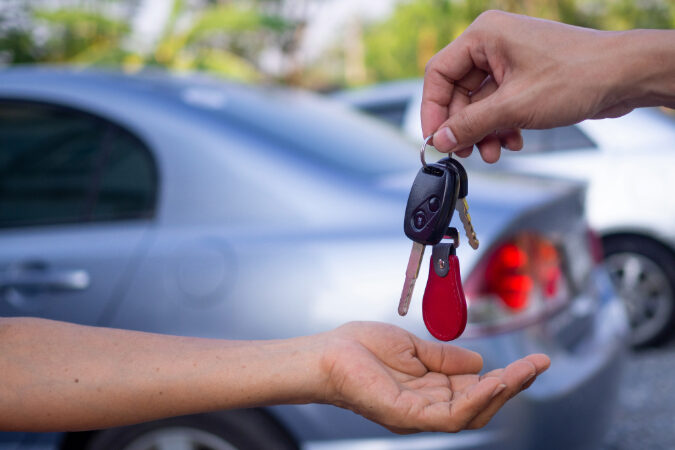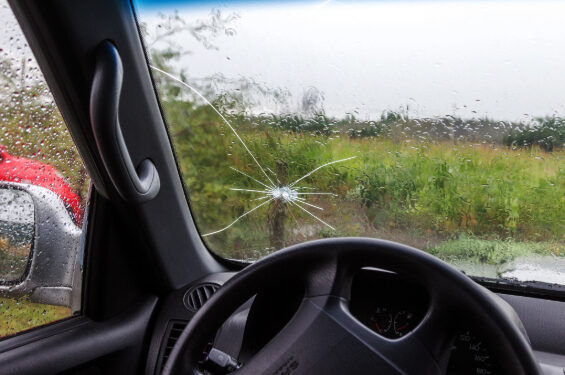
Just like leases have lessors, liens have lienors, or lienholders. The lienholder is the creditor to whom the debtor owes money. In some more specific cases, the lienholder may have given the debtor a loan to buy something, a car or a house, and their lien applies to that purchase until the loan is paid off. If the loan is not paid, the lienholder is able to seize the debtor’s purchase and sell it to pay off the rest of the debt.
Not every lien is the result of a direct loan and purchase kind of transaction, however, the lienholder always has a legal right to some asset of the debtor in the event of non-payment.
Who can be a lienholder?
People and companies can be a lienholder. This includes:
- Financial institutions: Banks and credit unions are common examples of financial institutions that can be a lienholder.
- Private lenders: Individuals, such as a family or friend, would be the lienholder if they give you a loan to purchase a car or home.
- Dealers: The car dealership from which you purchase your car
- Car manufacturer financing companies: In some instances, the car manufacturer’s financing subsidiary may be a lienholder.
What is a lien?
Sometimes, a person’s word isn’t quite enough. When creditors feel that there is some risk a debt will not be repaid, they can establish what is known as a lien. A lien is a legal right against assets that can be used as collateral to satisfy an unpaid debt. In other words, a creditor could file a lien on something a debtor owns, their car, for example. If the debtor does not uphold their obligations under the debt they owe, then the creditor could seize their car as payment. [1]
What happens when the loan is paid off?
When the loan is paid off, the lien is released (also called a lien release). The appropriate documents are then filed with government authorities to notify them that the lien has been removed from the property. [2] After the lien is released, the owner of the property will receive the title in their name. [3]
What happens if the loan isn’t paid off or defaults?
A default happens when the borrower stops making their required payments on a debt. [4] If you default on a loan or don’t pay it off, the lienholder has the right to your property. For example, if you have a mortgage and default on your payments, the financial institution or private lender has a legal right to your house. [3]
What is a lien on a car or vehicle?
When a lien is put on a car or vehicle, the lienholder is able to set certain conditions on the property until the loan is paid in full. In many cases, car liens are voluntary, meaning that you knowingly enter an agreement to put a lien on your car in exchange for the car loan, which helped you purchase the vehicle. [5]
What’s the difference between a lienholder vs lessor?
A lienholder and lessor share many similarities in how they operate with the debtor/lessee. In both cases, a payment system has been agreed upon. However, a lienholder is the party that gives the debtor the money to purchase an asset or piece of property. Lienholders have the legal right to take possession of the asset to fulfill the debt.
A lessor allows a party to use an asset in exchange for something else. While lienholders own the property until the loan is paid in full, lessors may not own the property they are leasing. Additionally, if a lien is in default, the lienholder can take back the asset. If the lease defaults, the party for which it was made loses their right to access the asset. For example, if a building owner leases an office space but the lessee defaults on the payments, the lessee would no longer have the right to use the leased space. [6]
Buying, selling or trading a car with a lien
Buying
If you’re buying a used car from a private seller, ensure it does not have a lien. You can do this by looking at the car’s title or going online and checking a website that offers a vehicle history report
If you still want to buy a car that has a lien on it, you could ask the seller to pay off the loan to release the lien. Or, you can take over the payments still owed on the car. [7]
Selling
There are several ways to sell a car with a lien, all involving different ways the loan can be repaid so that the car title can be transferred to its new owner. The seller can:
- Sell the car to a dealership: Dealerships will be able to help you with the associated paperwork regarding the lien, and they can help transfer the car’s title. This is usually the easiest route a seller may take.
- Allow the buyer to pay the lien: If a seller decides to sell their car to a private buyer, the seller must pay off the remainder of the loan. Once the loan is paid off, the lienholder will perform a lien release. [8]
Trading
Before you head to the dealership, contact your lienholder to understand what the loan payoff balance is. Once the balance is paid, they will release the lien. The lien must be released before the car is sold/traded in.
If you plan on trading in your car with a lien at a dealership, the dealer can help with the necessary paperwork (e.g., transferring the title) and paying off the loan. However, it’s important to understand the steps the dealership will take in paying off the lien. You may be held responsible if the lien is not paid in full. You should also know what the dealer will give you for the trade-in. If you end up owing more than what they offer, you will have negative equity, which means you’ll have to pay the difference for them to transfer the title. [9]
What is a lienholder on car insurance?
If a lienholder’s name is on a car’s title, they legally own the car. For the lienholder’s investment to remain protected, they may require the borrower to purchase comprehensive car insurance, instead of the minimum amount of insurance typically required by the state. This may increase the car insurance premium. [7]
How to add lienholder to insurance
To add a lienholder to a current insurance policy, contact your insurance provider or access your policy online and include the name and address of the lienholder. The lienholder’s information should be added to your policy when you purchase your car. If you do not have this information, add it to your policy as soon as possible. Talk to your independent agent for help.
Learn about the benefits of bundling your auto insurance and home insurance.
Sources:
[1] “Lien: Definition, Major Types, and Examples,” investopedia.com/terms/l/lien.asp (Accessed March 2025).
[2] “What Is a Lien Release and How Is It Used?” legalzoom.com/articles/understanding-your-lien-release (Accessed March 2025).
[3] “Is It Bad to Have a Lien on Your House?” investopedia.com/articles/credit-loans-mortgages/090816/it-bad-have-lien-your-house.asp (Accessed March 2025).
[4] “Default: What It Means, What Happens When You Default, and Examples,” investopedia.com/terms/d/default2.asp (Accessed March 2025).
[5] “What is a lien on a car?” chase.com/personal/auto/education/financing/what-is-a-lien-on-a-car (Accessed March 2025).
[6] “Lessor vs. Lessee: Differences, Accounting, & More Explained,” finquery.com/blog/lessee-vs-lessor-differences-accounting-and-more-explained/ (Accessed March 2025).
[7] “All you Need to Know About Car Liens,” upsolve.org/learn/car-liens/ (Accessed March 2025).
[8] “How to sell a car with a lien,” chase.com/personal/auto/education/selling/how-to-sell-a-car-with-a-lien (Accessed March 2025).
[9] “Can You Sell a Car That Has a Lien on the Title?” upsolve.org/learn/how-to-sell-car-with-a-lien/ (Accessed March 2025).
Disclaimer:
The information included is designed for informational purposes only. It is not legal, tax, financial or any other sort of advice, nor is it a substitute for such advice. The information may not apply to your specific situation. We have tried to make sure the information is accurate, but it could be outdated or even inaccurate in parts. It is the reader’s responsibility to comply with any applicable local, state, or federal regulations. Nationwide Mutual Insurance Company, its affiliates and their employees make no warranties about the information nor guarantee of results, and they assume no liability in connection with the information provided. Nationwide, Nationwide is on your side, and the Nationwide N and Eagle are services marks of Nationwide Mutual Insurance Company. © 2025 Nationwide.



